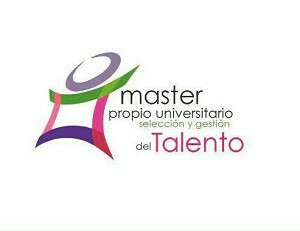What should I study if I want to work in HR?
The world of Human Resources (HR) is one of the most stimulating professional fields to dedicate to, in addition to offering a important source of work: there are always companies in need of this type of professionals, due to the very nature of the organizations.
However… How to specialize in HR? What do you have to study to find a job in this field? Let's see.
- Related article: "Mission, vision and values of a company: what they are, and examples"
What can I study to dedicate myself to Human Resources?
The field of HR is very diverse and draws on contributions from different disciplines related to the world of organizations and group behavior. Here we will see, first, what are the university careers that can train professionals who specialize in this type of work.
In any case, it must be clear that there are no rigid criteria that limit the entry route to Human Resources; there are simply a number of majors best equipped to produce graduates or graduates who have facilities at the time of being hired by companies or being accepted by Masters of specialization. These are precisely the university training programs that we will highlight here.
1. Business Management
The career of Business Administration and Management (ADE) provides a global vision about the operation of a company, for which this type of graduates or graduates have it relatively easy to enter to work in the field of Human Resources.
Thanks to their preparation, they will be able to easily understand the role of each type of professional in the organization, as well as as the internal logics that take place within these entities and that mark the rhythms in the behavior of their members.
2. Psychology
The career of Psychology allows you to learn about many central aspects in the world of Human Resources: dynamics of group behavior, functioning of communication in different contexts, creation of a work climate, types of incentives, sources of motivation and needs to be solved, etc.
In addition, it also provides graduates or graduates with tools to measure the state of affairs in a company, as well as with resources to apply in personnel selection tasks.
- You may be interested in: "Psychology of work and organizations: a profession with a future"
3. Labor Relations
People trained in Labor Relations are trained to plan and execute all kinds of personnel administration functions at the lowest level of detail, in everything related to the hiring protocols, vacation scheduling, payment management and settlements, etc. They also know everything you need about the relationship with the unions, the negotiation of collective agreements, etc. Therefore, they have knowledge of Law.
Thus, this work area focuses on the details of the more conventional and routine tasks of personnel management in a formal and formal sense. bureaucratic, as well as the key moments of negotiation in situations in which there are significant discrepancies between the Management and the workers.
Other related training paths
Although the easiest ways to enter to dedicate itself to Human Resources is studying the careers that We have seen, there are others that, to a lesser extent, also help as long as the specialization is available adequate. They are as follows.
Right
People who have graduated or graduated in Law can be very valuable to certain companies, especially in terms of support tasks for Labor Relations professionals, or directly directing this kind of work groups. This is especially useful in large companies based abroad and prone to boosting new corporate policies relatively frequently, since you want to avoid going to blind.
Sociology
Studying Sociology provides some skills and tools appreciated by certain organizations when it comes to enriching the functioning of their Human Resources departments, especially in large companies with large numbers of workers and databases to manage. Sociologists can conduct ad hoc research to detect problems, risks, and opportunities in the work dynamics of these entities.
How to specialize?

If you already have a bachelor's or graduate degree that meets what is required in the world of organizations and you just need to study to specialize in Human Resources, a very good option to have in account is the University Master's Degree in Talent Selection and Management promoted by the University of Malaga (UMA).
This training program includes, in addition to 300 hours of internships in external companies and a Master's Thesis, two blocks of contents that can also be taken individually as postgraduate training and that define the two main thematic poles of this Master: the University Expert in Talent Selection, on the one hand, and the University Expert in Training, Personal Development and Organizational.
In this way, through the University Master's Degree in Talent Selection and Management it is possible learn both in relation to the selection processes in recruitment and promotion of workers, as well as in the training and empowerment of skills of those who are already part of the organization. On this page you can find more information about the Master.
Among the contents taught here, always by a team of teachers dedicated mainly to the organizational field and with well-established careers, include subjects such as mastery of qualitative and quantitative selection tools, the management of the contractual relationship, the design of an internal communication plan, the management of conflicts, the study of real cases in well-known companies (by representatives of these organizations), leadership, incentive systems for workers, and much more.
Bibliographic references:
- Bohlander, G.; Sherman, A., & Snell, S. (2001). Human resources management. Andover: Cengage Learning Editors.
- Collings, D.G. & Wood, G. (2009), Human resource management: A critical approach (pp. 238-259). London: Routledge.
- Chiavenato, A. (2000). Human resources management. New York: MacGraw Hill.
- Ulrich, D. (1996). Human Resource Champions. The next agenda for adding value and delivering results. Boston: Harvard Business School Press.
